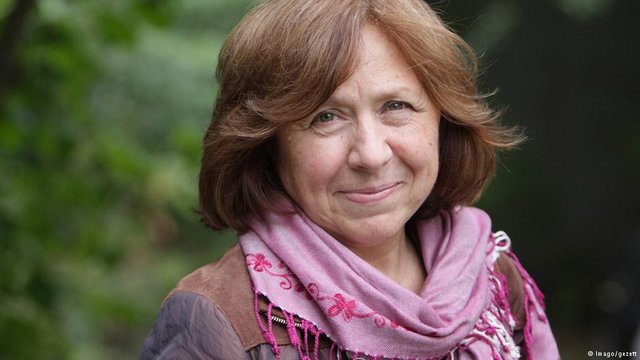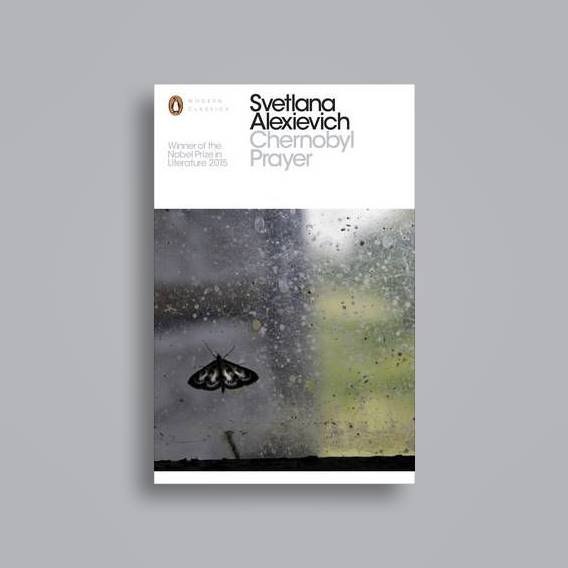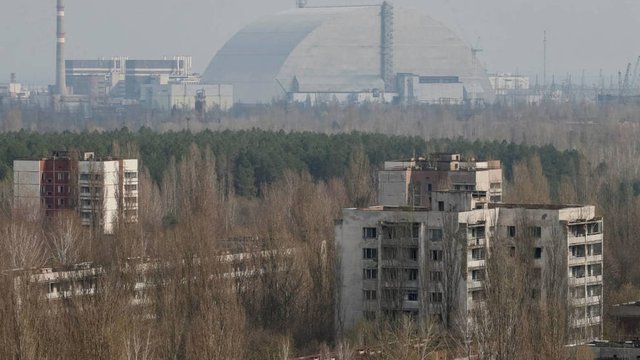The fate of the Chernobyl soul about "Chernobyl Prayer" by Svetlana Alexeivich.
Reviewing this book, I feel as an intruder. Alexeivich commentary on the text is and will always be a substitute for an awkward attempt to capture the relevance of the text. Each reader should personally meet with the matter of the reportage of a Belarusian journalist. It is impossible to give away his strength, size and meaning in a few sentences. Besides, the author herself is far from attempting to comment on events after April 26, 1986. In a typical way, she gives voice to witnesses and participants of those events, creating the so-called "stream of voices".

Svetlana Alexeivichsource
"Chernobyl Prayer” is therefore a set of relation - monologues of people who were affected by the tragedy. The journalist herself is just a shadow. Scribe, who for twenty years with stubbornness and consistency wrote everything that was connected with the Chernobyl tragedy.
The prelude to the shocking reports are factual information placed in the pages of Russian, Belarusian and Ukrainian newspapers regarding the reactor explosion. The number of victims, the consequences of the tragedy, the global echoes of the catastrophe. Numbers and facts. Immediately thereafter, as if at the other end of the mapping of reality, the poignant monologue of the firefighter's wife who put out the fire in the power station immediately after the explosion. A shocking monologue where the love of two young people literally falls apart. The radiation that the man underwent caused him to die on the hands of his wife in terrible torment. But this is not the end of the drama. This is one of many similar and unimaginable stories that includes the Alexeivich reportage. A dozen or so stories - residents of the region, liquidators, responsible for the explosion, families of dead soldiers and firemen, scientists and photojournalists. The entire spectrum of society.
The reportage ends with another monologue - the liquidator's wife whose husband also dies as a result of radiation. Confession of a woman who tangibly feels the absence of her deceased husband. Terrifying emptiness and equally terrifying powerlessness. Chernobyl was and still is a war - the author many times emphasizes on the pages of the reportage a total war, which until today is collecting its harvest. Loneliness of widows. The powerlessness of men. Horror of children. There is also an epilogue in which we can read about Chernobyl tourism. Post-apocalyptic holiday in the shadow of the reactor.
Alexeivich’s book can not be erased from memory. It's a strong and shocking reading. The master of the reporter's profession after the excellent and award-winning position "The Unwomanly Face of War" gives the reader a text that transcends the frame of human view. The author, writing about the Chernobyl tragedy, creates a new category of human - "Chernobyl man". Stigmatized by tragedy, rejected by the rest of society, whose baggage of experience goes beyond logical reasoning. But bad memories are only part of the consequences - there are also radiation diseases. Psychological pain penetrates physical pain. Chernobyl did not spare any human particles. It also did not spare nature. It mocked human reason. It again set a place for man in a series of entities. To a man who was too trusting and proud of the achievements of science. Painful pinch in nose.
"Chernobyl Prayer” is definitely a memento book. Speaking of the past, it touches upon the unrest of the future. It is a testimony to memory and is also an attempt to restore the individual sense of existence in a country where human life has no (and does not!) greater value. Apocalyptic vision of pain and suffering.

